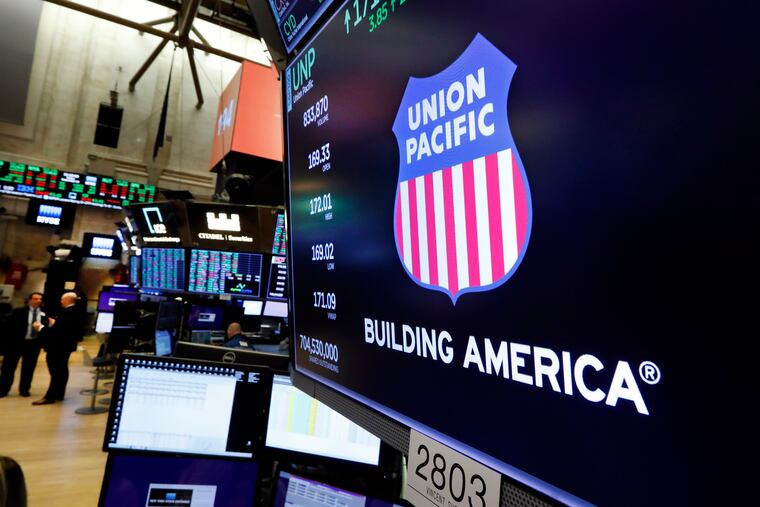Unions have been loyal to Democrats. How’s that working out?
Like John Fetterman’s pristine work shirt, Democrats' pro-labor claims are looking like a costume they put on to win elections and slough off once the votes are counted.

It’s common for conservatives to lament the decline of traditional institutions. Churches, clubs, fraternal organizations, neighborhood groups — all have been fading for a long time.
They are assailed on one side by a government that grows and forces its way into ever more areas of our lives, doing things people once did on their own or in groups. On the other side, they are squeezed by growing individualism and self-isolation. Both these trends are decades old, and both have rapidly worsened during the pandemic.
What distinguishes these institutions that conservatives value so? They are the sort of organizations that sit between the individual and the government, where people come together voluntarily to achieve some greater purpose.
In his 2020 book, A Time to Build, Yuval Levin describes churches and other traditional institutions as “the durable forms of our common life. They are the frameworks and structures of what we do together.” More than just a job or a practice, he says, “the institution organizes its people into a particular form moved by a purpose, characterized by a structure, defined by an ideal, and capable of certain functions.”
That sounds a lot like a labor union, doesn’t it?
» READ MORE: Congress must do more than keep rail workers from striking | Editorial
Unions arose to help working people negotiate against increasingly large and powerful business owners. They proved their value to their members by bargaining for better wages, benefits, and working conditions. In the process, the local union became one of the more important institutions in the lives of their members and their members’ families.
But as with every other institution, unions are waning. This month, the Biden administration and Congress helped to continue that decline by short-circuiting negotiations between rail workers and the railroads and forcing a settlement to avoid a strike. President Joe Biden called the settlement that the feds imposed “a good product,” but it is hard not to see it as a betrayal of workers. Friendly historians and political allies will likely praise Biden and insist that he is living up to his claim of being the “most pro-union president you’ve ever seen,” but it’s a strange title to hang on the strikebreaker-in-chief.
Biden’s actions are part of a trend of using government force to replace the power of institutions. Even if he thinks he’s doing it for a good reason, the result is necessarily the transfer of power from workers to Washington.
Union workers have been a loyal Democratic constituency since the New Deal, and Democrats love to portray themselves as the party of working people. But after nearly a century, the boast is wearing thin. Democrats’ support for free trade with developing nations led to outsourcing, while lax border enforcement adds millions of low-wage workers to an already struggling labor pool, suppressing workers’ wages further.
Like John Fetterman’s pristine work shirt, the pro-labor claim is looking like a costume that Democrats put on to win elections and slough off just as quickly once the votes are counted.
Working-class voters are not blind to the shift in Democratic policies. Ruy Teixeira, who in 2004 predicted an emerging Democratic majority, now sees that that party has abandoned the economic issues important to the working class in favor of the social issues treasured by the party’s new, richer, highly educated base. Social issues are elevated over kitchen table problems, and as a result, the Democrats’ share of noncollege-educated voters has plummeted. At the same time, their share of the vote of people in the top income group rose sharply, from one-third in 1988 to an even tie with Republicans in 2020.
» READ MORE: Dems and GOP unite to sell out the American worker. Maybe we need a Labor Party. | Will Bunch
If Democrats are on their way to replacing Republicans as the “party of the rich,” are Republicans about to replace Dems as the “party of the working class”? It’s not an easy switch. Many in the GOP have criticized organized labor for so long that it’s hard for union workers to trust them — and hard for once corporate-friendly Republicans to trust unions.
But things are changing. More Senate Republicans (10) than Democrats (four) voted against the bill to force a settlement in the railway dispute. Among them were Missouri’s Josh Hawley, Florida’s Marco Rubio, South Carolina’s Tim Scott, and Arkansas’ Tom Cotton. All young, leading voices among Republicans who are rethinking the Grand Old Party’s relationship with labor.
Hawley recently wrote in an op-ed for the Washington Post that the GOP “must offer good jobs and good lives, not just higher stock prices for Wall Street. And it must place working Americans at its heart and take them as they are, rather than treating them as resources to be exploited or engineered away.” Rubio notably supported the workers trying to unionize an Amazon warehouse in Bessemer, Ala., last year. In the railway strikebreaking vote, they backed up their words with actions.
The redrawn party lines of the 21st century may make for strange alliances. But rebuilding institutions and supporting labor unions are a natural fit. Big Labor trusted Democrats in the government to protect them and were betrayed. Now they can look to Republicans to help them protect themselves.